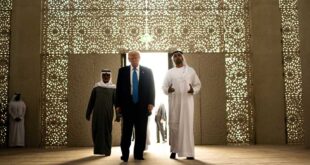Eng. Saleem Al Batayneh
Deng Xiaoping, the successor of Mao Zedong and architect of Chinese reform, once said, “If you want to cross the river, you have to feel the stones in its depths to cross safely.” This metaphor for cautious, pragmatic progress could not be more relevant today as we examine the interplay between political power and intellectual freedom.
In 1968, during a period of significant social upheaval in France, General Charles de Gaulle faced massive demonstrations by students and workers demanding reform and fighting corruption. Among the protestors was Jean-Paul Sartre, a prominent leftist philosopher who famously rejected the Nobel Prize for Literature. Sartre’s image was ubiquitous in the streets and newspapers, symbolizing the intellectual rebellion against de Gaulle’s administration.
At a critical security meeting, Charles Pasqua, the French Minister of the Interior, suggested arresting Sartre, who was seen as inciting the protests. De Gaulle’s response was profound: “France cannot arrest Voltaire!” Referring to Voltaire, a long-deceased symbol of freedom and enlightenment, de Gaulle emphasized that imprisoning Sartre would be tantamount to imprisoning France itself. He asserted that a rational political system must be open to criticism, even if it comes from its most vocal opponents.
De Gaulle’s wisdom was further illustrated when the satirical newspaper Le Canard Enchaine temporarily ceased its caricatures of him. De Gaulle humorously sent the newspaper a note asking, “Didn’t you like something about my nose today?” His ability to accept and even invite satire demonstrated a remarkable understanding of the importance of free expression in a democratic society. When asked what dictatorship meant to him, de Gaulle replied, “Dictatorship is France without Jean-Paul Sartre or Le Canard Enchaine.”
This tolerance for criticism is a hallmark of great leadership. Franklin D. Roosevelt, the only U.S. president elected four times, once noted the absence of criticism in the press. Concerned, he summoned journalists and encouraged them to criticize his administration, believing that without such scrutiny, progress would stagnate. Similarly, British Prime Minister Winston Churchill welcomed criticism from journalist Beard, recognizing that it exposed flaws and ultimately strengthened his governance.
Jean-Paul Sartre believed that a writer’s mission was to commit to the truth. Political systems that suppress dissent and purge opponents create chaos, blurring the lines between permissible and impermissible actions within the state’s structure. Wisdom in leadership, derived from past lessons, requires patience and forgiveness. Historical figures like Voltaire, Sartre, de Gaulle, Roosevelt, and Churchill are remembered for their contributions to thought and politics, not for silencing critics.
The true test of a political system’s strength lies in its ability to tolerate and engage with dissenting voices. Leaders who embrace criticism, as exemplified by de Gaulle’s refusal to imprison Sartre, Roosevelt’s invitation for critique, and Churchill’s appreciation of his critics, demonstrate a depth of vision and wisdom that fortifies the fabric of democracy. Such leaders understand that the genius of thought and the genius of politics must coexist to build enduring, resilient nations.
 Geostrategic Media Political Commentary, Analysis, Security, Defense
Geostrategic Media Political Commentary, Analysis, Security, Defense





